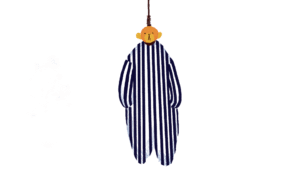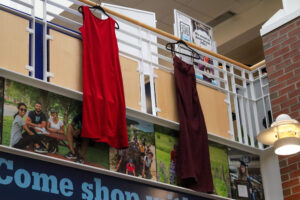Relationships are complicated – how many times have you heard that? It seems very easy to define the ‘good’ and ‘bad’ signs, green and red flags, etc. As you get to know someone, your perception changes and suddenly things feel so undefinable. When this happens, it can feel hard to ask for help. Questions of “Is this actually bad?” “Did I do this to myself?” and “Can I solve this alone?” float around in our heads and put off the help that we really, truly need.
“What we are trying to do is to confront domestic violence as a whole, trying to raise awareness,” said Casper Cowan, a fourth year Psychology and Women & Gender Studies (WGS) student and president of Triota, the WGS Honor Society and service organization on campus at the University of Maine. Cowan speaks to the heart of why this issue is so pervasive it is hard to confront. It is an uncomfortable topic that is a conversational taboo.
“I think trying to make it not scary is a big piece,” said Jen England, the Confidential Resource Advisor. “More so than with sexual assault, with dating violence and relationship violence, there is this idea that this is still elsewhere.” While sexual assault has had a spotlight put on it on college campuses in recent years, other forms of domestic violence are harder to pinpoint. Every situation is different and not every person has a specific moment or instance to point to as the crux of their issue.
“Domestic violence doesn’t always look the way we think it does. If a relationship or situation just doesn’t feel right, reach out. You’re not alone, there is a whole community for you that wants to see you in safe, healthy relationships,” England continued. Her words ring even more true on a college campus where people are being newly thrown into independence and complex relationships with others. It can be dizzying to make sense of the tornado winds of college relationships while still inside the storm. Groups like Triota and people like England try to ground students from the outside.
The UMaine WGS organization will be hosting a conversation event on October 17 in the Bangor room of the Memorial Union. It is here that students who feel confused, skeptical or in any way unsure about their relationships can hear from those who know what is happening and have helped countless other students.
“It can feel bleak at our events when we are reading a lot of statistics,” England said, commenting on how it is hard to know what to make of abstract numbers. “But when we have speakers like Casper who can talk to the crowd — like student to student, it becomes more human.” But while their voices are strong and certain at events like this, they underlined the fact that they never wanted to push students too hard.
“Trust your gut. If you feel like you are not ready for this you do not have to go through it right now. Everyone’s healing experiences are different,” Cowan stressed. The people who are here to help know they cannot force change on others. And there is no shortage of new opportunities to have your voice heard or yourself informed.
“Title IX usually has plenty of events every single week of October. Triota will be tabling in the Union the week before our event with a bake and craft sale with Partners for Peace,” said Cowan.
“There’s a lot of good resources, such as the National Domestic Violence Hotline, Partners for Peace, and many more resources. They are definitely out there for those who need them,” England added. These are people who are truly out to help others, and to spread a feeling of welcoming community; one that accepts people as they are and does not define them by what they have gone through.
“You have a community. There are people out there like you who have experienced similar things. The best way to make a difference is to step outside of your comfort zone. Maybe you are not super comfortable with going to campus events — go to this one, take a chance, make a difference with a little step every day,” were Cowan’s final remarks.








